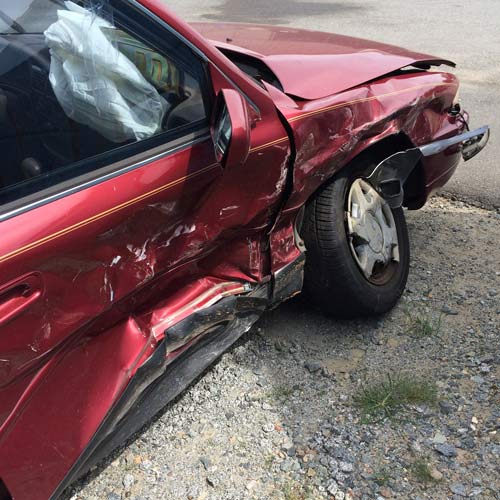 No one sets out in their car thinking that today, on this particular journey, they will be involved in an accident. Car accidents always happen to someone else. Until they don’t, and it’s you.
No one sets out in their car thinking that today, on this particular journey, they will be involved in an accident. Car accidents always happen to someone else. Until they don’t, and it’s you.
Now, we’re not trying to make anyone paranoid about the dangers of driving. After all, the UK is one of the safest countries in the world in which to drive. But still, in 2015 (the latest year stats are available for), there were 186,209 road collisions resulting in some sort of injury — and that’s 500 people a day whose car journey unexpectedly went badly wrong.
The good news is that there are plenty of things you can do to radically lower your chances of being involved in a car accident. And most of them are so easy, it’s ridiculous. In this blog post, we’ve picked out four straightforward ways of making your journey safer.
1. Make sure your vehicle is roadworthy
Yes, we know it’s obvious. That means there’s no excuse for not doing it! You’re going to be piloting hundreds of kilos of metal down the road, at speed. It’s your job to make sure it can stop, turn, signal and so on adequately. Of course, an MOT will pick up problems, but what about the twelve months in between inspections?
Vehicle-related failures, in one form or another, contribute to a significant number of accidents. So get repair work done promptly, keep an eye on your tyres and (if you’re not confident yourself) get a trained mechanic to look at anything you think might be an issue.
2. Don’t trust those ‘friendly flashers.’
No, we’re not talking about someone hanging around the park! Flashing your lights to let another driver know they can go is against the Highway Code, but most of us do it. Unfortunately, this little act of kindness can and does result in accidents.
When someone flashes their lights at you, it’s easy to confuse I have permission to go with it’s safe for me to go. And the two can be very different things. The driver who is signalling you may not be reading the road situation accurately. His view of the road may be more restricted than he thinks, or he may just have missed something, such as an approaching vehicle or cyclist. Worse still, he might not even be signalling what you think. Maybe he’s warning you not to go. Or maybe he’s just spotted his mate in the car behind you. Or perhaps he’s hit the stalk by accident.
At any rate, our first tip is to be especially cautious of trusting ‘friendly flashers’. Read the road for yourself before you manouevre.
3. Don’t play games with other drivers
We know it’s tempting. Some idiot is driving ten centimetres away from your bumper, and it’s infuriating. Naturally, you want to get your own back. A touch on the brakes would give him a fright; slowing right down would annoy him even more; letting him overtake and then tailgating him would be a taste of his own medicine.
Just don’t.
Apart from the obvious possibility of either you or the other driver miscalculating, you risk escalating the situation beyond what you anticipated. You don’t know anything about him or how he will react, whether he is just a bit impatient or has just escaped from Broadmoor. There’s another problem, too. As you get wound up and the stress hormones start flowing, your judgement will get worse and worse.
So, our third tip for safer journeys: learn to let go of other driver’s bad behaviour. The road just isn’t the place for playing stupid games.
4. Joining the queue? Leave some space.
What do you do when you spot a queue of traffic? If you’re like many drivers, you pull up so close behind the last car that you couldn’t fit a Christmas card between them. There are at least two reasons why this is a terrible habit. The first is the possibility of needing some manoeuvring room. Whether there’s an emergency vehicle trying to get through or the car in front breaks down, you might be glad of a bit of space. Secondly, there’s what’s coming up from behind. If the car whizzing up behind you has misjudged their stopping distance, you might just have time to make use of that space you’ve left in front. If the worst happens and you’re shunted, leaving a few metres of space may stop you cannoning into the car in front.
Until self-driving cars come along, chances are that we won’t be seeing big improvements in the accident rate. But we hope that our post gives you some useful reminders on how to keep you and your passengers safe on the road.
WVS are an independent garage that offers comprehensive servicing and repair work, as well as MOTs for drivers of all marques. Convenient for Cardiff, we meet the needs of motorists throughout South Wales.

